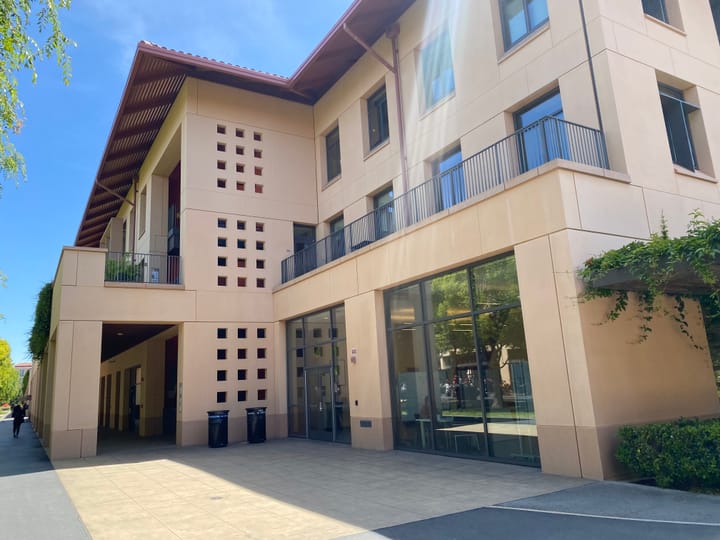What I Learned at This Year's AIGAC Conference (and What It Means for MBA Applicants)
This year's annual AIGAC conference brought us to UC Berkeley Haas, Stanford GSB, and UCLA Anderson – three very different, but exceptional MBA programs. If you're thinking about applying to business school in the 2025-26 cycle, here's what's you should know:

This year's annual AIGAC conference brought us to UC Berkeley Haas, Stanford GSB, and UCLA Anderson – three very different, but exceptional MBA programs. I've lived in both the Bay Area and LA, and it's always great to return to catch up with friends and colleagues.
AIGAC, the Association of International Graduate Admissions Consultants, offers a unique opportunity for admissions consultants like me to learn from admissions directors from top MBA programs. This was my third annual conference, and the conversations were really eye-opening and engaging.
If you're thinking about applying to business school in the 2025-26 cycle, here's what's you should know:
1. You need to have your act together
Here's the thing: MBA applications might be flat year over year (or even down a bit), but don't get too excited. I don't expect the competition to be less fierce. If anything, schools are getting pickier about fit and whether you actually know what you want.
The standout candidates these days aren't necessarily the ones with the fanciest resumes. They're the ones who can clearly explain why they want an MBA, why they want it now, and why they picked that specific school.
2. International students will face challenges
This is probably no surprise, but the political situation in the U.S. and visa processing times are shaking things up. Here's what I'm hearing:
- More Americans are seriously looking at MBA programs in Europe and Asia (not just as backup options)
- There's a significant uptick in applications from West Africa and Southeast Asia
- Some schools are cutting off international admits after certain deadlines, due to visa timing issues
Bottom line: If you're applying from outside the US, don't mess around with timing. Get your applications in early and make sure all your documentation is ready to go.
3. You must develop fluency in AI
AI is changing business in real time, and MBA programs know it. You don't need to be a programmer, but you absolutely must understand how tech is impacting your role, function, and industry.
Whether you want to go into consulting, finance, healthcare, or run a nonprofit, you must articulate how AI is driving change. Admissions officers are paying attention to these trends, and candidates who understand and can talk about it have a real advantage.
4. Ad comms know when you're using AI for your applications
They're not naive: everyone's doing it. You can use AI to brainstorm or clean up your spelling and grammar – that's fine.
However, you'll kill your chances if you outsource major portions of your applications to AI. Admissions officers can spot generic responses instantly. And sloppy candidates aren't doing themselves any favors by pasting in their ChatGPT prompts (!!) Yes, this happens.
Admissions committees really want to learn more about you. They want to hear YOUR voice, not some AI version. So, use AI tools as writing coach, rather than a ghostwriter. The stories and insights still need to come from YOU.
5. The full-time MBA still has a place
It seems like there are tons of specialized master's programs popping up, and some people are skipping the traditional two-year MBA entirely. That's totally understandable, given the opportunity cost and investment.
However, the full-time, two-year MBA still makes a lot of sense for certain candidates. If you need serious help pivoting your career, want access to structured recruiting, or want to build a truly global network, the full MBA is still a fantastic option.
Don't get too caught up in what everyone else is doing, or be too unrealistic with your choices. The reality is that you can likely reach your goals with a number of programs. Pick the one that makes sense for where you are in your career and where you want to go.
Real talk
It will be interesting to see what happens this year in the context of the challenging job market and political dynamics here in the U.S.
Now, more than ever, candidates need to make a compelling case for why they want to pursue an MBA and why now.
As you develop your applications, focus on your purpose, clarify your intentions, and show that you understand what you're getting into. That's what's going to matter in this year's cycle.



